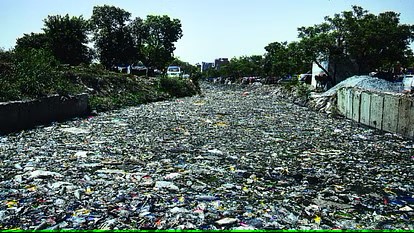A new report by the Centre for Science and Environment (CSE) has revealed a major concern – Delhi and its surrounding areas contribute to a staggering 70% of the total debris generated by 131 Indian cities. This startling figure paints a grim picture of pollution and mismanagement in the region.
According to a recent report, pollution from debris emanating from Delhi-NCR is increasing. According to the report of CSE (Centre for Science and Environment), 6563.48 tonnes of debris is generated in 131 cities in a day. Most of the debris is coming out of Delhi. 3448 tonnes of debris is coming out of Delhi in a day. This is the highest in any city in the country.
Key findings of the report:
- Delhi alone generates a whopping 50% of the total debris, with an alarming daily output of 3448 tonnes.
- The remaining 130 cities combined produce a daily total of 3115.48 tonnes of debris, with most cities contributing less than 100 tonnes.
- Despite having the country’s largest debris management system, Delhi continues to struggle with illegal dumping, particularly in green belts, urban forests, water bodies, and low-lying areas.
- This mismanagement has severe consequences, contributing significantly to air and water pollution, posing a serious threat to public health and the environment.
The report highlights the urgent need for:
- Effective enforcement of regulations: Stricter implementation of existing laws and penalties for illegal dumping are crucial.
- Decentralized waste management: Shifting from centralized systems to localized processing facilities can improve efficiency and reduce transportation emissions.
- Public awareness campaigns: Educating citizens about responsible waste disposal and the harmful effects of illegal dumping is essential.
- Investing in sustainable infrastructure: Building waste-to-energy plants and utilizing recycled materials in construction are crucial steps towards a circular economy.
The CSE report serves as a wake-up call for authorities and citizens alike. Addressing the Delhi-NCR debris crisis requires a collective effort, with decisive action from the government and active participation from the community. By implementing effective solutions, we can mitigate the environmental impact of debris and create a cleaner, healthier future for all.




